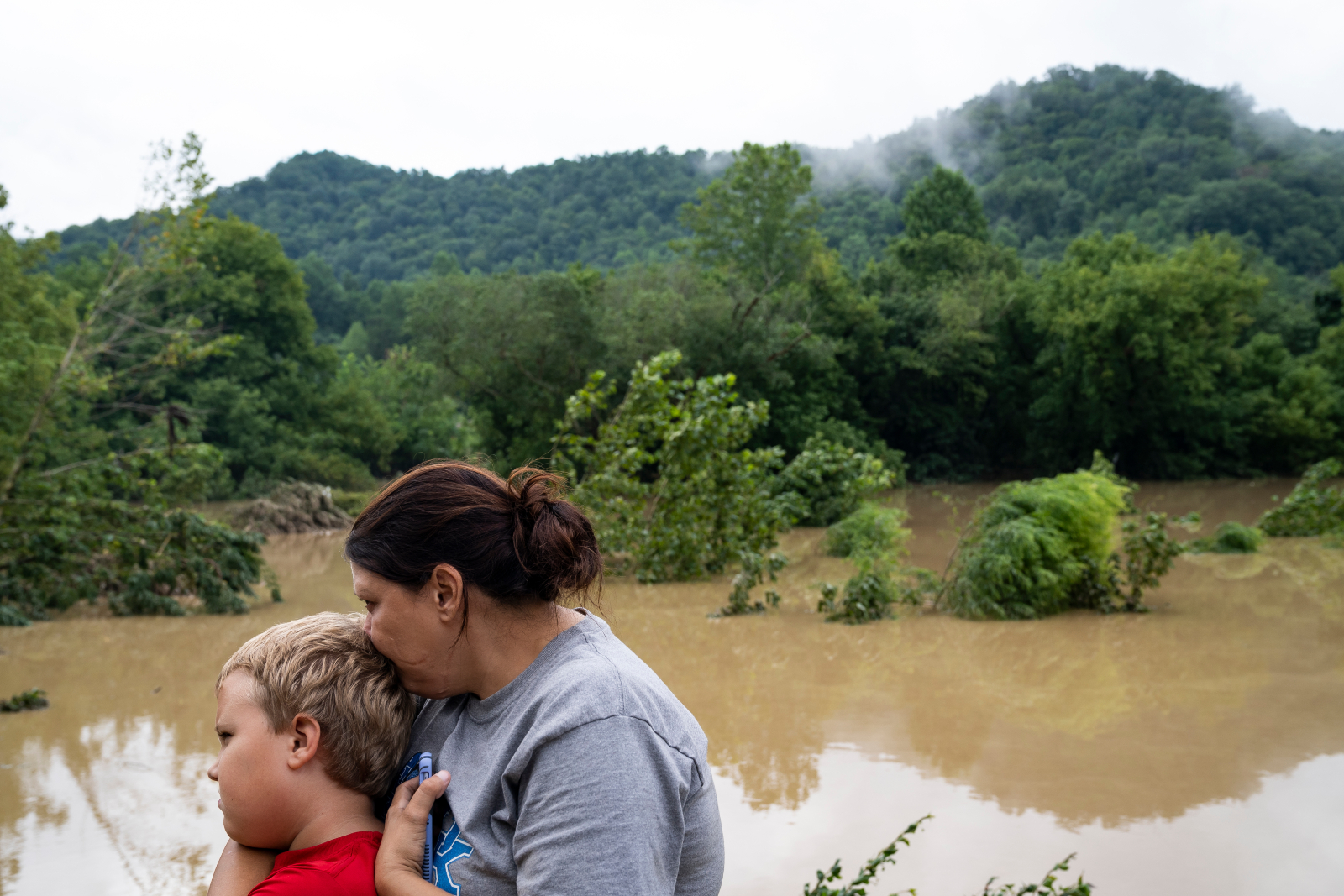Nearly 60 Kentucky residents have filed a lawsuit against neighboring coal companies, alleging negligent practices that contributed to recent historic flooding.
The lawsuit, filed in Breathitt County Circuit Court last week, seeks damages for personal property such as homes and vehicles ruined by the early August flooding that killed 39 people and left hundreds of Kentuckians without a place to live. Many residents of Lost Creek, an unincorporated town in eastern Kentucky, are now without their homes and living in tents. They are also seeking compensation for emotional damages from Blackhawk Mining and Pine Branch Mining.
Blackhawk Mining, founded in 2010, currently operates eight coal facilities in eastern Kentucky and southern West Virginia, including the Pine Branch complex, a subsidiary of open pit mines roughly seven miles from Lost Creek. The company has grown in recent years despite its former bankruptcy and a global coal investment downturn where large financial institutions have pulled out of coal operations. The Pine Branch coal mine is uphill from Caney Creek, a tributary of the North Fork Kentucky River, and neighbors the River Caney community of which Lost Creek is a part.
Coal mining has deep roots in eastern Kentucky and may have directly caused some of its worst floods ever. Past research suggests that flood-prone communities in eastern Kentucky overlap with heavily mined landscapes changed by mountaintop removal—a process where mountains are blasted with explosives and rain-absorbing vegetation is killed to access coal seams beneath. The lawsuit alleges that Blackhawk and Pine Branch operations were “ticking time bombs ready to explode with any type of heavy rainfall.”
“They won’t have water for six months. All the power lines are down,” Ned Pillersdorf, the attorney representing Lost Creek residents, told Grist. “Most of the people, if not everybody, are displaced.” Pillersdorf has experience suing coal companies in the wake of devastating floods and represented West Virginia coal miners fighting for paychecks after coal giant Blackjewel’s bankruptcy.
The lawsuit alleges that Blackhawk and Pine Branch did not properly maintain their silt retention ponds, which caused contaminated waters to flood the homes of Lost Creek residents. These ponds amass debris, sediments, and water stemming from coal mining. Silt pond flooding is not new to coal communities and has caused the evacuation of neighboring residents for decades, and has contaminated nearby waterways.
The lawsuit alleges that “debris, sediment, and other matter, including fish, escaped from the silt ponds and came onto the property of many of the plaintiffs,” and the neighboring coal companies violated state law by not properly maintaining these ponds.
Blackhawk Mining said in a company statement that they do not agree with the claims made in the lawsuit. Recent flooding has not stopped the coal company from blasting mountains, however, and the lawsuit alleges that the company posted notices that blasting will continue in the coming months even though communities are still recovering from the flooding. A report from NBC News also found that Pine Branch has circulated notices detailing that operations will continue from now until next July.
“Our people were deeply impacted by the flooding, including loss of loved ones, homes and belongings. We have been supporting the community with relief efforts from the beginning and our sympathies are with those affected,” said the statement. “The flood was a natural disaster without precedent.”



